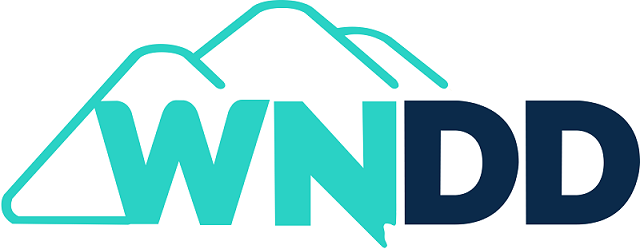| Curated by: The Western Nevada Development District…
This edition of Five for Friday focuses on opportunities for economic development around the region in the areas of rural services, business development, infrastructure and food security. Grant Opportunities & More From Fire Trucks to Telemedicine: USDA Program Bolsters Rural Community Services The USDA’s Community Facilities Direct Loan & Grant Program provides affordable funding to develop essential community facilities in rural areas. An essential community facility is defined as a facility that provides an essential service to the local community for the orderly development of the community in a primarily rural area, and does not include private, commercial or business undertakings. Examples of essential community facilities include: • Health care facilities such as hospitals, medical clinics, dental clinics, nursing homes or assisted living facilities Application Deadline: Open Rural Business Development Grants USDA Rural Development program designed to provide technical assistance and training for small rural businesses that have fewer than 50 new workers and less than $1 million in gross revenue. Uses include project planning/feasibility study, business incubators, land acquisition, leadership and entrepreneur training. Contact your state to learn about local application timelines, concept paper requirements. Application Deadline: February 28, 2023 Local Foods, Local Places Toolkit: A Guide to Help Communities Revitalize Using Local Food Systems Nationwide, consumers are growing more interested in getting foods from producers in the same geographic region through farmers markets, community-supported agriculture, farm-to-school programs, and similar initiatives. Strong interest from communities prompted a group of federal agencies to offer assistance with a community-driven planning process that explores how to use the benefits of local foods to help revitalize downtowns and neighborhoods. The resulting Local Foods, Local Places Program presented by the U.S. EPA helps communities create action plans that chart a course for using local foods to help meet a broad range of community goals. The program and its predecessor, Livable Communities in Appalachia, has worked with more than 80 communities since 2014. Local Foods Local Places Program Program Background: Livable Communities in Appalachia National Roadway Safety Strategy Grants The U.S. Department of Transportation’s new Safe Streets and Roads for All (SS4A) is a discretionary program with $5 billion in appropriated funds over the next 5 years. The SS4A program funds regional, local, and Tribal initiatives through grants to prevent roadway deaths and serious injuries. This week, U.S. Transportation Secretary, Pete Buttigieg, announced $800 million in grant awards for 510 projects through the first round of funding for the Safe Streets and Roads for All (SS4A) grant program. Activities are eligible for the SS4A program: • Develop or update a comprehensive safety action plan (Action Plan) Round 2 of grant funding is expected to open in April 2023 Award Announcement and Selected Projects National Roadway Safety Strategy Grants Conserve and Improve Wildlife Habitat The Partners for Fish and Wildlife (PFW) Program is a voluntary, incentive-based program that provides direct technical assistance and financial assistance in the form of cooperative and grant agreements to private landowners to restore and conserve fish and wildlife habitat for the benefit of federal trust resources. Current U.S. Fish and Wildlife partners include farmers, ranchers, forest landowners, recreational landowners, corporations, local governments and universities. Priority goes to projects judged likely to provide habitat for rare, threatened and endangered species. Projects have a minimum duration of 10 years. In addition to private landowners, we partner with other federal agencies, state agencies and non-governmental organizations to complete projects on private lands. Maximum grant awards of $750,000. Review all program information and contact your state Fish and Wildlife biologist BEFORE developing or submitting an application. |
